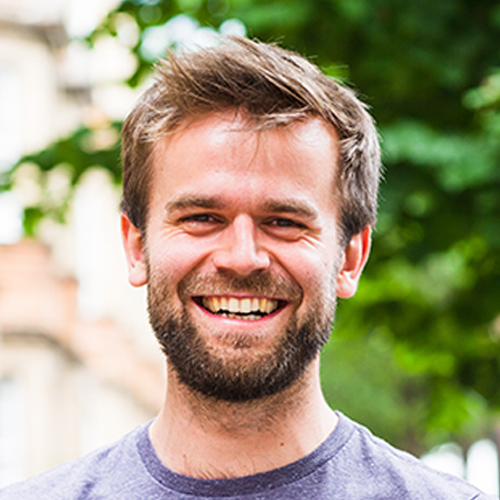Sweaty, medal-laden friends with weary smiles are flooding our news feeds. Marathon season is upon us. I can’t complain because I’m one of them. I love to run – in fact, I completed my eleventh half-marathon, in Budapest, last weekend.
My training routine used to be to run a bit further or faster than the previous week. During a run I’d have very little concept of my pace beyond how it felt. My housemate, on the other hand, had a dependency on his phone to tell him how his run was going. I mocked him for it. Until I got a running watch.
Suddenly I had my pace lighting up my wrist every km. I stopped taking in my surroundings and listening to my legs, and started only caring if I was a few seconds above or below par pace. My mood and satisfaction with my run started being controlled by a minute by minute measurement. The problem was only compounded by joining Strava (other running apps are available, but aren’t as popular). Now I felt compelled to always try to run as fast and far as I could. Simply because my friends would see.
My approach was dumb. You need a mix of slow runs, fast runs and interval training to maximise your running potential. Instead, I focused on running as fast as I could each run because I could measure it and my friends would or, heaven forbid, wouldn’t like it.
It reminded me of a book I’d read recently. Particularly, the titles of the first two chapters, ‘What we see we value’ and ‘What we measure controls us’. Seeing a minute by minute measurement of my run didn’t increase my performance, instead it controlled me. As did my friends seeing it. What others saw, I valued.
Outside of running, it’s a more blatant truth. Think about it: Your salary, the number of times your latest Salt article is shared (nudge, nudge), the hours you work, the number of people you’ve slept with (or not in my case), the value of your home (or if you’ll ever own one), are all measurable things. Normally, we like to think we are in control of them. But when you reflect, it feels like they control us and our emotional wellbeing.
Previously, you couldn’t quantify popularity. It was there but it wasn’t visible. Now it’s numerically defined for every social media user. It’s causing serious mental health problems for Western teenagers and existential angst amongst millennials. The data is great for algorithms. But not so great for humanity because we end up being controlled by the things we measure, curating our lives to maximise likes.
Virtues like love, honesty, integrity and so on, aren’t measurable. Yet they are so much more valuable. We all believe that love is greater than likes. But the visible measurability of salary, Strava and so on, means we end up focusing our best energy on them rather than what is actually valuable.
The trouble is, in a numbers game you can’t win. Unless I start beating Mo Farah, I’ll always fail to measure up. Incidentally, I did race Mo. Not that he’ll remember, but there were only 25 Brits between us. But that’s because in Lisbon the thousands of people who finished between us didn’t have GBR on their passport. Whichever way I try to cut it, there will always be someone faster, more liked, and more successful than me, in whatever measurement I choose. Once it is quantified, I lose.
It was the same for the then richest-man-in-the-world, Jean Paul Getty, as depicted in the film All the Money in the World. Asked, “what would it take for you to feel secure?” he can only answer, “more”. On the surface as the world’s wealthiest man, he appears to have all the power and control. But he doesn’t. He is controlled by his wealth. He is so powerless to money, he puts his kidnapped grandchild in mortal danger just to preserve a tiny fraction of his astronomical wealth. What a weak man.
Yet we all do the same. We buy into a world where everything is increasingly measurable. We mimic and idolise people because of their wealth, social media presence or marathon times, not for who they are. But what’s the solution?
First, recognise it’s a problem. When you find yourself being controlled by the numerical arrangement of your bank account, likes on your Instagram post or times on Strava, then you’ve got to ask what’s in control?
Second, give up control. On the subject of money, the book I read cogently argued that freedom from measurement lies in giving away and holding things loosely. Similarly with running, a school-friend who runs at speeds to nearly match Mo Farah advised me that 80% of runs should be easy and the real key is to enjoy them. It wasn’t easy to let most of my runs fall below my desired Strava standard but I’ve rediscovered running for pleasure, for the endorphins, the beauty of the world I’m running through and the challenge of stretching myself purely for its own sake.
Ultimately, you’ve got to ask is there more meaning to life than what we can measure?


